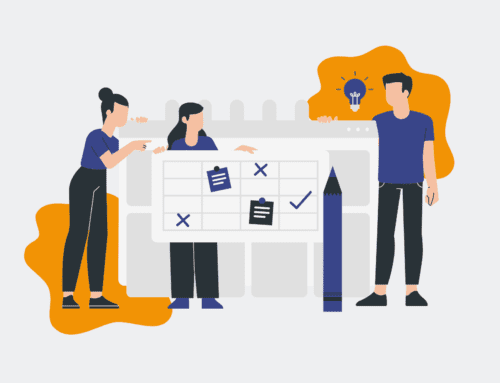Staying Ahead of the Curve: Latest Innovations in AI-Powered Resume Analysis
In the high-stakes world of talent acquisition, the ability to quickly and accurately identify top candidates from a sea of applications is not just an advantage—it’s a strategic imperative. Traditional resume screening, a labor-intensive and often subjective process, has long been a bottleneck for even the most efficient HR departments. At 4Spot Consulting, we understand that time is money, and inefficiencies in talent acquisition directly impact your bottom line. This is where AI-powered resume analysis steps in, not as a futuristic concept, but as a present-day solution redefining how businesses discover and engage with talent.
The Evolution of AI in Talent Screening
For years, AI in resume analysis was largely synonymous with keyword matching. Recruiters would input a list of skills and qualifications, and the AI would scour resumes for exact matches. While a step up from purely manual review, this approach often overlooked nuance, context, and the subtle indicators of true potential. It was a blunt instrument in a field demanding precision. Today’s AI, however, has evolved far beyond simple keyword recognition. We’re witnessing a paradigm shift, moving towards systems that understand semantic relationships, predict future performance, and even help mitigate unconscious bias.
Beyond Keywords: Semantic Understanding and Contextual Matching
The most significant leap in AI-powered resume analysis lies in its ability to interpret meaning, not just identify words. Modern algorithms, powered by natural language processing (NLP) and machine learning, can now grasp the context of a candidate’s experience. This means understanding that “led a team of five” is indicative of leadership experience, even if the word “leader” isn’t explicitly stated. They can discern transferable skills, recognize achievements despite varying terminology, and even identify potential by analyzing the trajectory of a career rather than just a snapshot.
For example, if a resume mentions “optimized CRM workflows” in one role and “streamlined data entry processes” in another, advanced AI can connect these dots to infer a strong aptitude for operational efficiency and process improvement. This deeper contextual understanding ensures that exceptional candidates aren’t overlooked simply because their resume doesn’t perfectly mirror a rigid job description. This level of insight allows businesses to broaden their talent pool without compromising on quality, saving invaluable time for HR and hiring managers.
Predictive Analytics and Candidate Fit
Another groundbreaking innovation is the integration of predictive analytics. Beyond merely evaluating past experience, cutting-edge AI can now analyze a candidate’s profile against existing top performers within your organization, identifying patterns and predictors of success. This isn’t about replicating current staff but understanding the attributes, skills, and even learning styles that correlate with high performance in specific roles and company cultures. By leveraging historical data, AI can offer probabilities of a candidate’s success, retention, and cultural alignment, transforming hiring from an educated guess into a data-driven decision.
This capability is particularly valuable in high-volume hiring environments or for specialized roles where the cost of a mis-hire is substantial. Instead of relying solely on subjective interviews, HR teams can enter conversations armed with data-backed insights into a candidate’s potential fit and future impact. This strategic approach minimizes human error and significantly reduces the time-to-hire, a critical metric for scaling businesses.
Mitigating Bias and Enhancing Diversity
One of the persistent challenges in traditional recruiting is the unintentional introduction of bias. Human reviewers, consciously or unconsciously, can be influenced by factors unrelated to a candidate’s qualifications. AI, when designed correctly, offers a powerful tool for mitigating these biases. By focusing purely on quantifiable skills, experience, and achievements, AI-powered systems can objectively assess candidates, blind to names, addresses, or other demographic indicators that could lead to unfair discrimination.
This doesn’t mean AI is inherently bias-free; it’s only as good as the data it’s trained on. However, with careful implementation and continuous monitoring, AI can be a powerful ally in fostering a more diverse and inclusive workforce. At 4Spot Consulting, we emphasize strategic AI implementation that not only boosts efficiency but also aligns with your organization’s ethical hiring practices, ensuring a truly merit-based selection process.
The Strategic Advantage for Modern HR Leaders
For HR leaders and COOs navigating the complexities of a competitive talent market, these AI innovations are more than just technological novelties—they are essential strategic tools. Implementing advanced AI-powered resume analysis means:
Accelerated Time-to-Hire:
Automating the initial screening process drastically cuts down the time from application to interview, allowing you to secure top talent before your competitors.
Improved Quality of Hire:
Deeper insights and predictive analytics lead to better-matched candidates who are more likely to succeed and stay with your company.
Reduced Operational Costs:
By eliminating manual screening hours, your HR team can focus on higher-value activities like candidate engagement, strategic planning, and employee development.
Enhanced Candidate Experience:
Faster processing and more relevant initial interactions create a positive impression, critical for attracting and retaining talent.
The shift from manual, subjective review to intelligent, data-driven analysis is not merely an operational upgrade; it’s a fundamental change in how businesses engage with the talent pipeline, leading to more robust teams and sustainable growth.
4Spot Consulting: Your Partner in AI-Powered Talent Acquisition
At 4Spot Consulting, we don’t just talk about innovation; we implement it. Our OpsMap™ framework helps businesses like yours identify the critical junctures where AI and automation can deliver the most significant ROI. We understand that integrating new technologies can seem daunting, which is why our approach is strategic, hands-on, and outcome-focused. From identifying suitable AI tools for resume analysis to seamlessly integrating them with your existing CRM and HRIS systems, we build solutions that work, allowing your high-value employees to focus on what truly matters.
Our experience shows that by automating processes like resume intake and parsing—often leveraging tools like Make.com for integration and AI enrichment services—companies can save hundreds of hours per month. This frees up your recruitment teams to engage with qualified candidates on a deeper level, transforming their role from administrative burden to strategic talent advisor.
Conclusion: The Future is Automated and Intelligent
The landscape of talent acquisition is constantly evolving, and staying ahead means embracing the tools that empower your HR function. AI-powered resume analysis is no longer a luxury but a necessity for any organization serious about attracting, evaluating, and retaining the best talent. By leveraging semantic understanding, predictive analytics, and bias mitigation, businesses can achieve unparalleled efficiency and effectiveness in their hiring processes. It’s about working smarter, not harder, and ensuring your talent strategy is aligned with the future of work.
If you would like to read more, we recommend this article: The Strategic Imperative of AI in Modern HR and Recruiting: Navigating the Future of Talent Acquisition and Management









